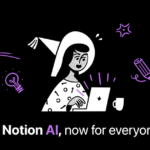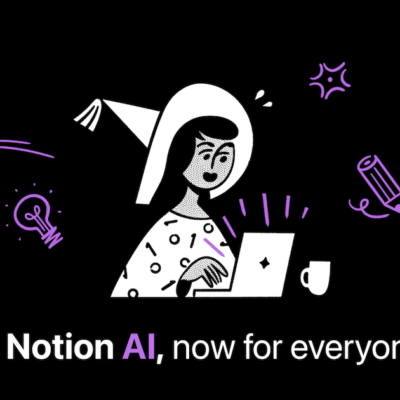In today’s fast-paced world, staying productive and organized is essential for success. With so many tasks and responsibilities to manage, it can be challenging to keep everything in order. Fortunately, there are many productivity and organization tools available that can help make the process easier. One such tool is Notion, an all-in-one workspace that allows users to create custom pages and databases for various purposes.
Notion is a powerful tool that combines the features of note-taking, project management, task tracking, and more into a single platform. It provides a flexible and customizable workspace that can be tailored to meet the needs of individuals or teams. In this blog post, we will take a closer look at Notion and explore its features, benefits, and drawbacks.
Features of Notion:
Notion offers a wide range of features that make it a versatile and powerful productivity and organization tool. Here are some of the key features of Notion:
- Custom Pages: Notion allows users to create custom pages that can be used for note-taking, project management, task tracking, and more. Users can customize the pages with various elements such as text, images, tables, and more.
- Databases: Notion allows users to create custom databases that can be used for organizing and tracking information. Users can add different types of fields to the databases such as text, checkboxes, dates, and more.
- Templates: Notion provides a wide range of templates that users can use as a starting point for their projects. Templates are available for various purposes such as meeting notes, project planning, task management, and more.
- Integrations: Notion integrates with many popular tools such as Google Drive, Trello, Slack, and more. Users can easily import and export data between Notion and other tools.
- Collaboration: Notion allows users to collaborate with others in real time. Users can share pages and databases with others, assign tasks, and leave comments.
Benefits of Notion:
Notion offers many benefits that make it a popular choice for productivity and organization. Here are some of the key benefits of Notion:
- Versatility: Notion’s custom pages and databases allow users to organize and track information for various purposes. Users can use Notion for note-taking, project management, task tracking, and more.
- Customization: Notion provides a flexible and customizable workspace that can be tailored to meet the needs of individuals or teams. Users can customize pages and databases with various elements and templates.
- Efficiency: Notion’s integrations with popular tools allow users to save time by importing and exporting data between Notion and other tools. Users can also collaborate with others in real time, which can help increase productivity.
- Accessibility: Notion is available on multiple platforms, including web, desktop, and mobile devices. Users can access their workspace from anywhere, which can help increase accessibility and flexibility.
Drawbacks of Notion:
While Notion offers many benefits, there are also some drawbacks to consider. Here are some of the key drawbacks of Notion:
- Complexity: Notion’s many features and customization options can be overwhelming for some users. It can take some time to learn how to use Notion effectively.
- Cost: Notion’s pricing model can be expensive for some users. While there is a free version available, it has limited features. The paid plans can be costly for individuals or small teams.
- Performance: Notion’s performance can be slow at times, especially when working with large databases or pages. This can be frustrating for some users.
Conclusion:
Notion is a powerful all-in-one workspace that offers a wide range of features




